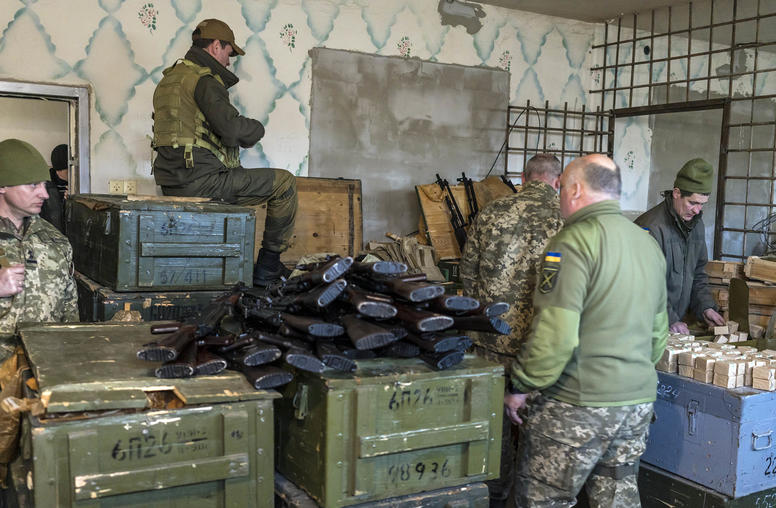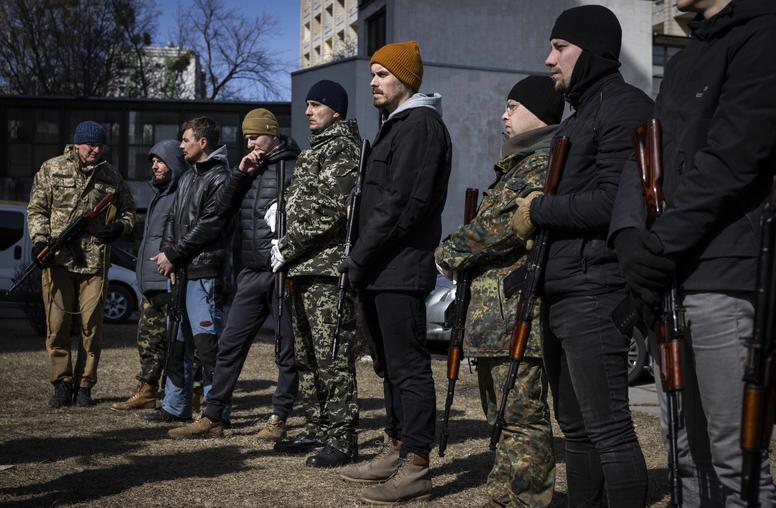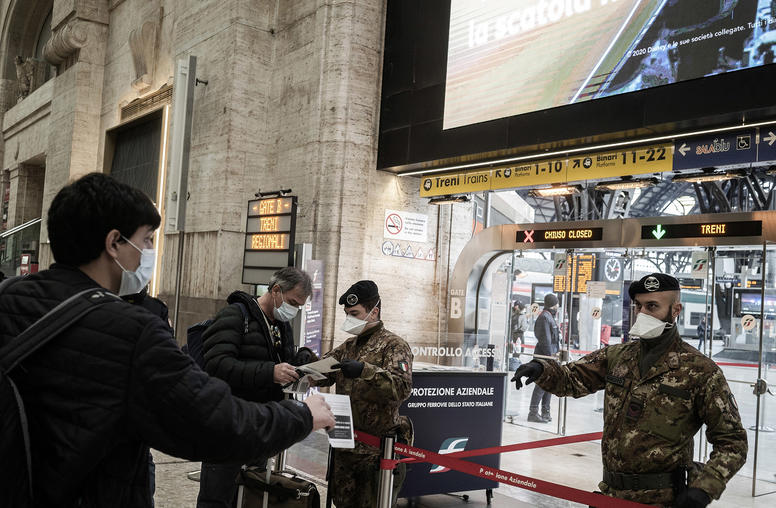Publications
Articles, publications, books, tools and multimedia features from the U.S. Institute of Peace provide the latest news, analysis, research findings, practitioner guides and reports, all related to the conflict zones and issues that are at the center of the Institute’s work to prevent and reduce violent conflict.
Question And Answer
Amid a Changing Global Order, NATO Looks East

Ukraine: The EU’s Unprecedented Provision of Lethal Aid is a Good First Step
Just three days after Russia began its war of aggression against Ukraine, the European Union announced that it would provide weapons to Ukraine through a new financing instrument, the European Peace Facility (EPF), marking the first time in EU history that the bloc provided lethal weaponry. Over the past six months, the EU has provided €2.5 billion to Ukraine through the EPF for arms and equipment, signaling a more muscular EU foreign policy featuring the unprecedented provision of direct military assistance.

Protecting Civilians in Ukraine Now — and After the War
From the images of the people summarily executed in Bucha to the remnants of Mariupol’s bombarded theater where hundreds of civilian refugees perished, Russia’s war on Ukraine has unleashed immense suffering on the civilian population. As policymakers debate the most effective forms of support amid Russia’s new offensive in the east and southeast, Ukraine must be provided with the necessary military assistance to fend off Russian aggression. But it will be equally important to immediately start planning for the long term, preparing to offer flexible and multifaceted support to the military and civilian components of Ukraine’s security sector.

To Consolidate Democracy, Change U.S. Security Assistance
As the United States pursues its initiative to bolster democratic rule and human rights after last week’s Summit for Democracy, a priority should be to diagnose and repair the flaws in U.S. and allied approaches to helping vulnerable nations strengthen their security. Our existing pattern of security sector assistance focuses largely on training and equipping such nations’ forces, and it emphasizes the security of governments and institutions, rather than of the people they are meant to serve. This type of assistance prioritizes short-term tactical gains to the detriment of long-term U.S. strategic goals—and it should be reformed.

How Missing Data Can Make the Global Fragility Strategy Work
As glaring inequalities in the global recovery from COVID-19 become clearer, the U.N. has warned of growing risks of political tensions and conflict in many countries. This poses a daunting challenge to U.S. foreign policy and presents a test for the new Global Fragility Strategy (GFS), which aims to reduce state fragility and break cycles of violence in critical regions. What the GFS lacks, however, is a clear “theory of success” that explains why and how proposed actions will lead to desired outcomes in fragile states. A new capacity-based approach is needed to identify fragile states with high potential for effective engagement, particularly security sector reform (SSR).

Global Fragility Act: A Chance to Reshape International Security Assistance?
When the new U.S. administration gets to work, domestic priorities will be front and center on the agenda. Preventing state fragility and violent extremism abroad may seem less urgent. But implementing the Global Fragility Act (GFA)—which aims to fulfill those goals—should remain a top priority. Successfully advancing the GFA would directly benefit U.S. national security and help establish a more values-driven foreign policy. To this end, the United States should work with allies to create a global architecture for security sector assistance built on principles of aid effectiveness adapted from development financing. A U.S.-brokered international consensus on security assistance would help stabilize fragile states, prevent violence, and increase the value of dollars spent on the GFA.

How to Put Human Security at the Center of the Response to Coronavirus
The coronavirus pandemic will have long-lasting repercussions for governance, justice, and security—among many other things. Many governments are working to contain the outbreak by adopting emergency measures and powers. Security sector actors—police, armed forces, border control authorities, penitentiaries, community security groups, and militias—are now playing a key role in limiting the virus’ spread.